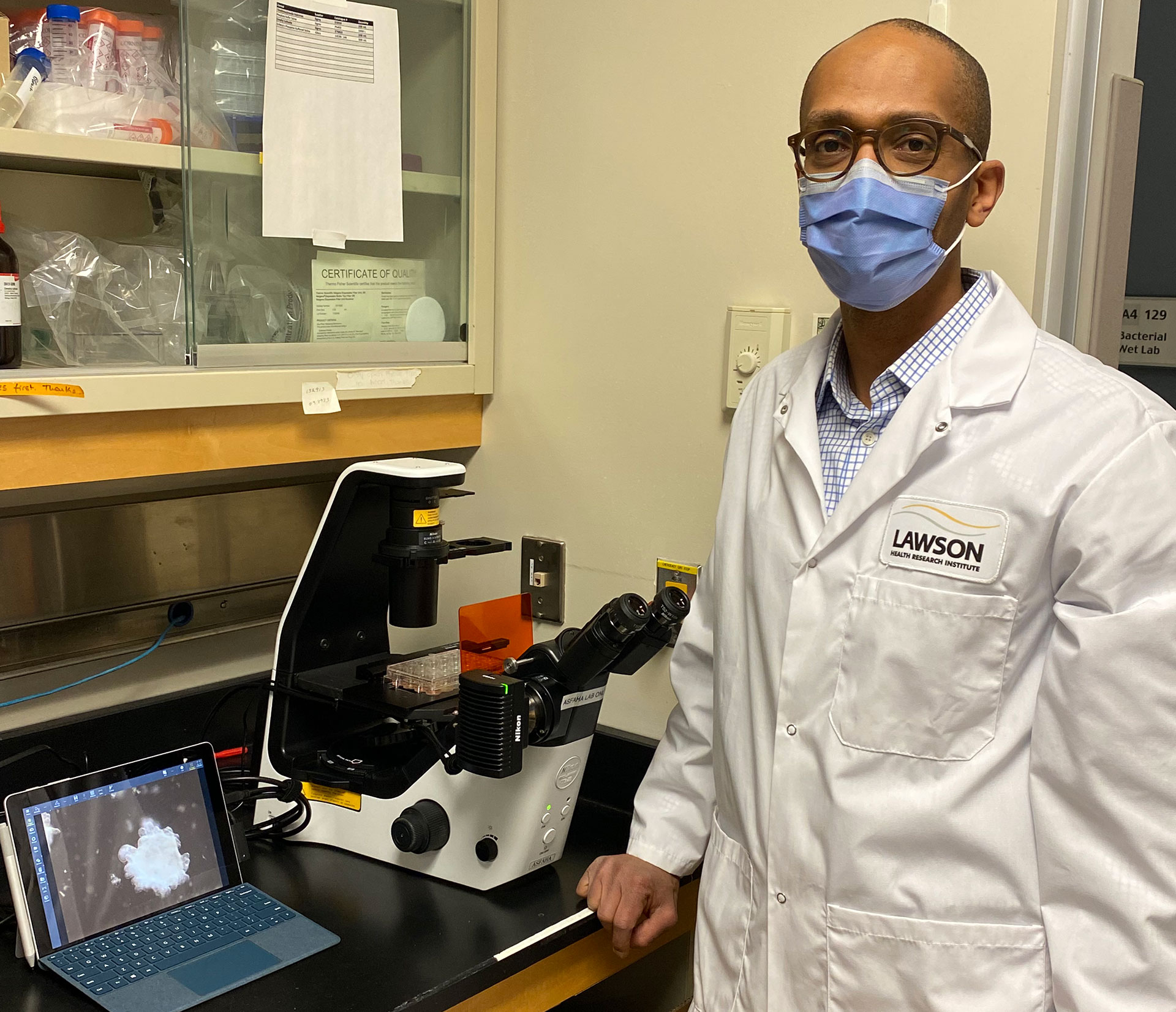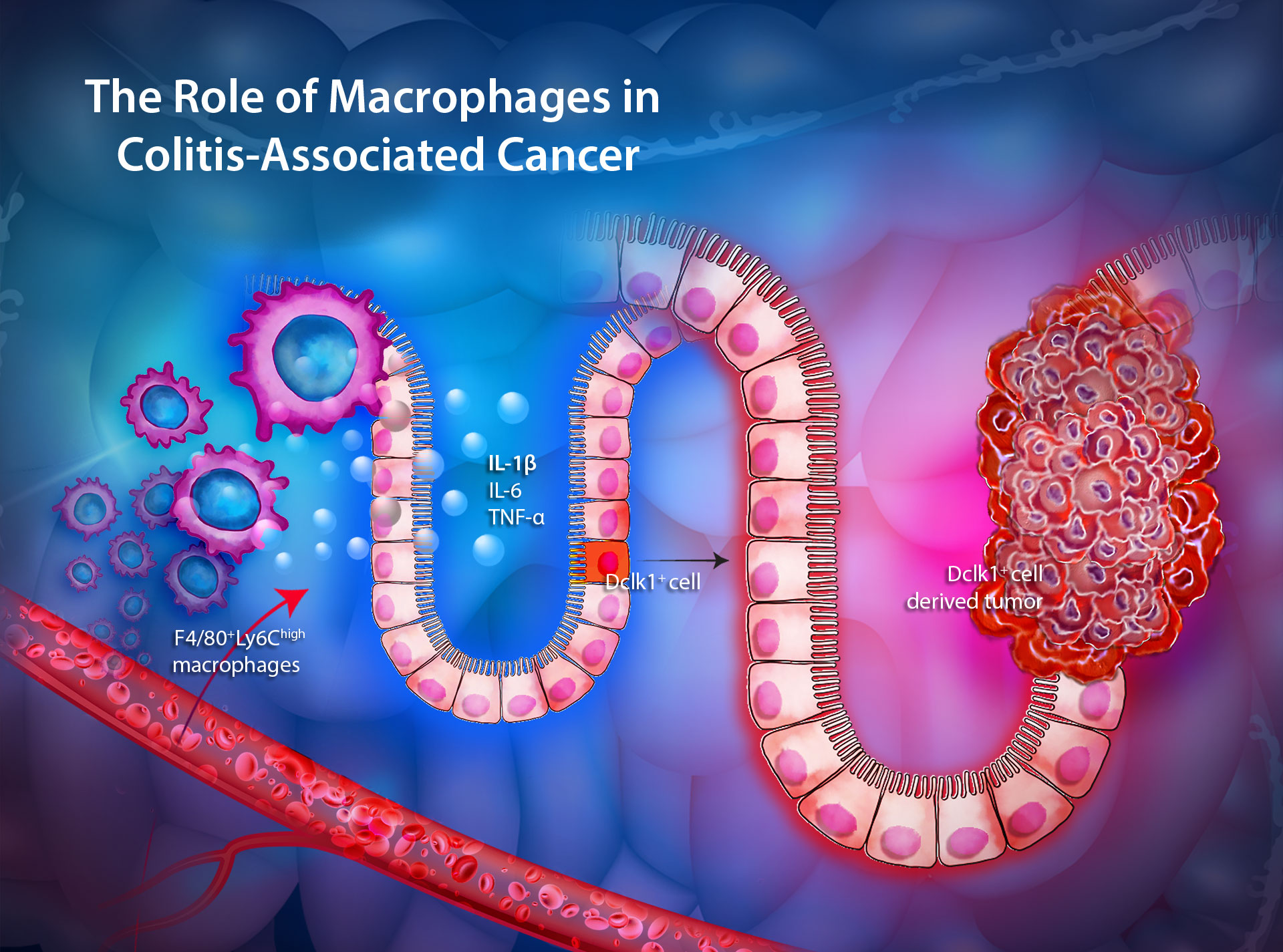

In a new preclinical study published in the journal Gastroenterology, researchers at Lawson Health Research Institute and Western University have found that a specific type of inflammation may be associated with an increased risk of colorectal cancer.
Colorectal cancer is the second most common cancer in Canada and one of the leading causes of cancer death. One of the major risk factors is inflammation caused by illnesses like colitis, Crohn’s disease or other forms of inflammatory bowel disease (IBD).
Previous studies have shown that the degree of inflammation caused by colitis is an important indicator of the risk of a patient developing colorectal cancer. In this study, researchers from Lawson and Western’s Schulich School of Medicine & Dentistry studied six different types of colitis – which result in different forms of inflammation – to assess whether certain types were associated with a higher risk of cancer.
“We found it wasn't necessarily the severity and duration of the inflammation that was most important, but rather the type of inflammation,” says Dr. Samuel Asfaha, a Lawson Scientist, Gastroenterologist at London Health Sciences Centre (LHSC) and Associate Professor at Schulich.

The team found that only one type of colitis led to cancer in preclinical models. They identified a new subset of immune cells called macrophages that were critical to the development of cancer. They also found that if they blocked these specific immune cells, they could prevent colitis-associated cancer.
“To our knowledge this is the first published study that extensively compares the different models of colitis or inflammation in the colon,” says Dr. Alice Shin, lead author on the study, which she worked on as PhD student at Schulich. “We are also the first to show that this specialized subset of macrophages that we identified are important for the initiation phase of inflammation-associated cancer.”

The next steps are to understand what the macrophages are doing to initiate cancer and whether a biomarker could be found that would identify which patients with chronic inflammation are at higher risk of developing cancer.
“Patients who have chronic inflammation often must undergo annual cancer surveillance,” Dr. Asfaha says. “By being able to differentiate those who are most at risk for developing cancer versus those who are who are at lower risk, we can focus our attention on those who are at increased risk.”
There is hope that further study could also lead to an understanding of whether certain treatments are more effective for colitis-associated cancer as opposed to other non-hereditary (sporadic) colorectal cancers.
Communications Consultant & External Relations
Lawson Health Research Institute
T: 519-685-8500 ext. ext. 64059
C: 226-919-4748
@email